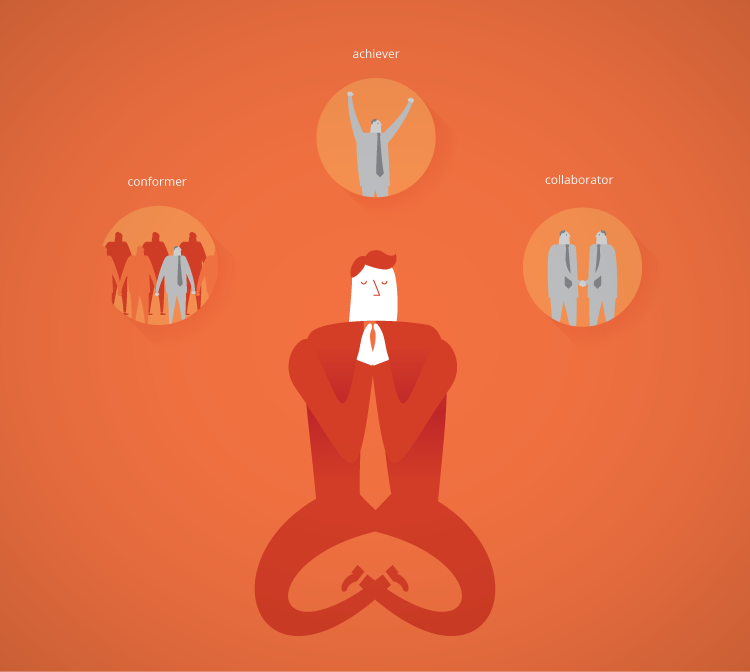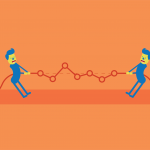
How often do you say you’re going to do something and don’t end up doing it? What would happen if you changed all the things you said you were going to change? Kegan and Lahey from the Harvard School of Education spent 20 years studying why it can be so hard for people to do the things they say they want to do.
They developed a technique called Immunity to Change, and its background theory includes meaning-making and the stages of adult development. One of the basic ideas is that the personal goals that we want to achieve and don’t, represent the limits of our current development as adults. Put another way, we fail because we’re trying to create a behavioural or emotional shift that is inconsistent with our identity – that is, our deepest beliefs about who we are.
As we develop more sophisticated ways of thinking, we move from seeing things as subject (I am) to object (it is). It’s a bit of a slippery idea that took me a while to hold on to and I’d encourage you to read more about it. It’s being able, in a continuing and expanding number of situations, to move from being part of that situation, to being an observer of it. It’s about releasing expectations, making things ‘less about me’, and being more open to possibilities. This concept fits well with what Buddhist psychology calls ‘ignorance’ – as the Buddhist monk Mattieu Rickard says, ‘we take it for granted that we see things as they are, and rarely question that opinion’.
As an example of the concept, consider a simple change in language from “I take two sugars” to “I’ll take two sugars”. It moves me from I am (a person who takes sugar) to it is (something I’ll do right now). It releases the permanence of identity (how I am) and allows the possibility that things (what I do) can change. It’s a deceptively simple distinction and since I’ve made the effort to notice it, I’ve found it incredibly liberating.
The Centre for Creative Leadership has built on Kegan and Lahey’s ideas and identified three successive stages of ‘vertical development’ that adults can grow through, and the type of leadership thinking that goes with them:
Stage 1: Dependent – Conformer: a team player and faithful follower of ‘your values’; aligns with others and relies on authority and direction, with a “win:lose” approach.
Stage 2: Independent – Achiever: a self-directed thinker who is guided by personal standards and ‘my values’; a transactional leader.
Stage 3: Interdependent – Collaborator: a longer-term thinker who can hold contradictions and multiple perspectives. Has a ‘win:win’ perspective, as they have no need for polarised thinking; an inspirational leader.
The stage from which a person thinks and acts affects many things that influence their professional effectiveness, including what they notice, their ability to see patterns, and their ability to hold on to multiple stakeholder perspectives.
How do people progress their personal development? While a child’s development appears to happen automatically, psychologists believe adults need to work to keep developing.
Good quality coaching and facilitation can help. When I work with individuals I’m fascinated how seemingly small insights can end up having a broad impact on whole teams and wider organisational performance. And there’s an even simpler way to start. Buddhism has taught for millennia what brain scanning has started confirming in the last twenty years: meditation is a simple and highly effective way to practise recognising our own assumptions about people and the world, helping liberate the fixed view of ‘I am’ and allowing us to meet the world as ever-changing and full of potential.
How can you weave these concepts into the way you and your team think, speak and act in the workplace? Take some time and explore the positive effects mindfulness and meditation can bring.
The birds have vanished into the sky.
Now the last cloud drains away.
We sit together, the mountain and me,
until only the mountain remains.
Li Po






